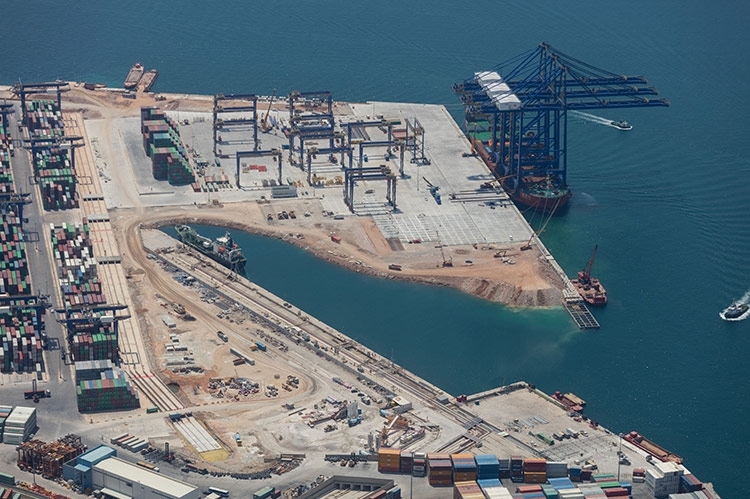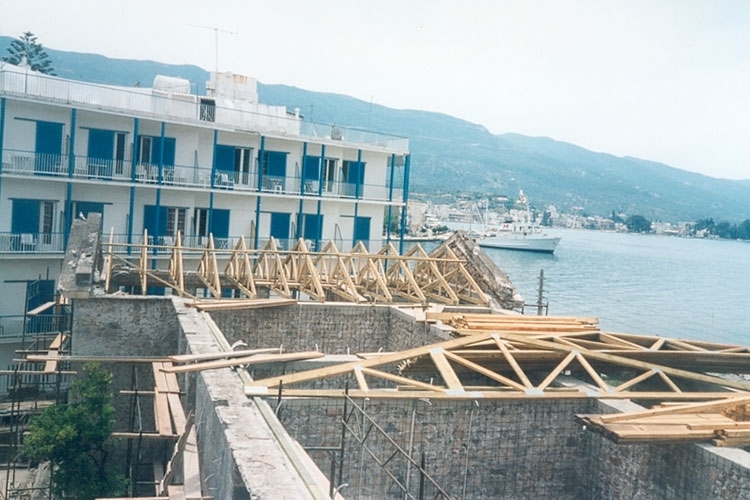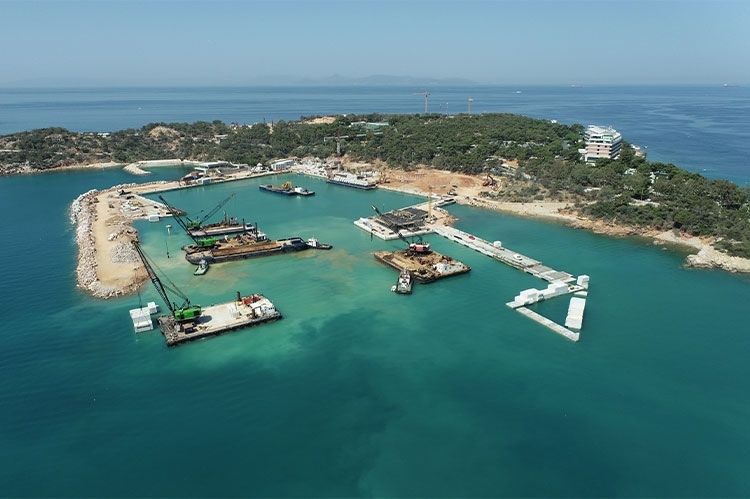Dr. Antonios Panas, General Director of TEKAL S.A., Assistant Professor in the National Technical University of Athens and President of PEDMEDE companies’ sector, talks to Green Circle Erasmus+ programme for the importance of upgrading skills in the construction sector and the role of micro credentials to promote the green agenda of the Greek industry.
How do you think micro-credential training could optimize work processes? In which specific areas do you see this as most necessary?
The micro-credentials training may create a more focused culture in the optimization of work processes. The trainees will weigh in all critical parameters of their scope of work and through a targeted educational procedure, they will be able to locate areas for improvement. In that sense, an iterative evaluation process could possibly lead to the optimization of the applied work processes.
The construction industry evolves at a rapid pace. As such, although the construction sector adopts traditional construction methods and techniques, areas that relate to product certification or new technology adoption (e.g. BIM, IoT, sustainability management, ESG compliance) could possibly be significantly benefited from the micro-credential training.
Would you consider hiring employees with green skills validated by a micro-credential certificate? Would you be willing to offer additional compensation for this specialization? Why or why not?
Hiring employees with green skills validated by a micro-credential certificate is certainly as asset that would positively affect a construction organization. It would mean that the specific employee has at least an augmented awareness for issues relating to green project management and sustainability, which is quite often demanded by Clients.
On the other hand, in my personal view, this is not a standalone feature that would justify an additional compensation. Our remuneration scheme is based on a multi-criteria evaluation where “green aspects” play an important role in the overall assessment of the candidate employees.

Which types of construction projects (e.g., industrialized construction, renovation, rehabilitation, others) would benefit the most from the implementation of micro-credentials for green skills?
“Green skills” are associated with many aspects of the construction projects. However, each construction project is unique and presents specific challenges that have to be addressed. Based on our experience, the effective application of any skills requires a learning curve that is gradually acquired through the years. Therefore, we believe that standardized construction projects are ideal for the implementation of micro-credentials principles for green skills. As an example, such projects would be the off-site fabrication of construction segments (e.g. prefabricated concrete elements) or the greenfield construction of iterative, typical-shaped buildings.
What barriers to adopting green building practices can be addressed through agile and targeted learning? How are these needs currently being met by construction companies?
Agile and targeted learning may lead to the resolution of cultural barriers hindering the adoption of the green skills to the everyday construction operations. It seems that construction operatives are reluctant in changing their usual routine, since they operate in an industry that evolved in a slower pace compared to similar business sectors. Therefore, modern construction organization adopt training schemes and apply educational processes targeted at both the on-site and off-site personnel for the development of green skills and the promotion of the green agenda across their sectors.
How important do you think it is for construction companies to participate in the dialogue on skills accreditation?
Any skill accreditation scheme should have a practical value for the improvement of the construction process per se. As such, construction companies present a crucial role in shaping the results of the initiated dialogue. It would be meaningless to discuss about lifelong learning and professional development initiatives in relation to green skills without actively involving the construction companies throughout the lifecycle of the development process.
What initiatives do you believe are crucial to address the current needs in the Greek construction sector?
The Greek construction sector has undergone a ten-year period of intense crisis (2010-2020). The current status of the Greek construction industry presents positive prospects for the future. The ten-year delay in the execution of critical projects can be seen as an opportunity to change the status quo and implements new project management processes in the realization of new construction portfolios and programs. Contractors’ associations such as PEDMEDE already promote the green agenda to all involved authorities and the anticipated initiatives are the launching of large-scale educational programs targeted at construction operatives for the improvement of their skills. Especially if we take into account that Greece is ranked last among all European countries in its ability to attract young people (15-24 years old) into the sector. As such, we need initiatives that will transform the Greek construction sector into an attractive business sector for the next generations.

Author: Efie Ziropoulou
Photos: TEKAL S.A.

